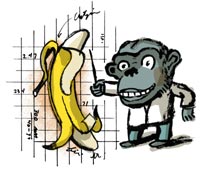 Some interesting interviews for those of you out cleaning the garage this weekend.
Some interesting interviews for those of you out cleaning the garage this weekend.
The first is Raghu Rajan, a favorite of Professor Finkler (I’m guessing from this link), in a Vox interview, “Fault lines: how hidden fractures still threaten the world economy.” From the abstract:
Raghuram Rajan of the University of Chicago talks to Romesh Vaitilingam about his new book Fault Lines, in which he outlines the deep systemic problems in the world economy that threaten further financial crises – high US inequality, patched over by easy credit; excessive stimulus to sustain job creation in times of downturn; and the choices of Germany, Japan, and China to focus on export-led growth rather than domestic consumption. The interview was recorded in London in July 2010.
The second is a favorite of mine, Political Scientist David Brady, over at EconTalk.
David Brady of Stanford University talks with EconTalk host Russ Roberts about the state of the electorate and what current and past political science have to say about the upcoming midterm elections. Drawing on his own survey work and that of others, Brady uses current opinion polls to predict a range of likely outcomes in the House and Senate in November. He then discusses the role of recent health care legislation in the upcoming election as well as Obama’s approval ratings. The conversation concludes with Brady’s assessment of how Congress might deal with the demographic challenge facing entitlement programs.
Brady has a good sense of politics and political history, in addition to being an excellent social scientist. In my policy making institutions course at Carnegie Mellon, I used Brady & Volden’s Revolving Gridlock as an introduction to a simple spatial model and an overview of the past 40 years of American politics (Just don’t tell Professor Hixon).
And, I buried the lead here. Laurie Santos talks about monkey decision making over at TED. Who knew monkeys were so irrational? She does some monkey experiments and finds that monkeys consistently make the types of “irrational” errors that humans make.
Laurie Santos looks for the roots of human irrationality by watching the way our primate relatives make decisions. A clever series of experiments in “monkeynomics” shows that some of the silly choices we make, monkeys make too.
I coined the tag “monkeynomics,” not realizing that there actually was monkeynomics. Click on the tag for more monkey business.
 This question came up in class the other day — are you peeling your bananas wrong? As usual, the Armchair Economist Steven Landsburg has
This question came up in class the other day — are you peeling your bananas wrong? As usual, the Armchair Economist Steven Landsburg has